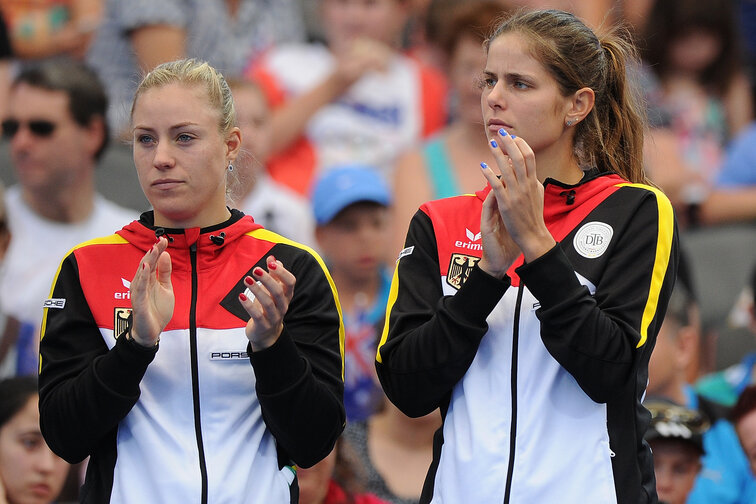Worries in German women's tennis: After the "golden generation" comes the big gap
After Julia Görges' resignation , the German Tennis Association has to look to the future with worry. Behind the generation around Görges, Kerber and Co. there is a big gap among women.
by SID
last edit: Oct 23, 2020, 06:01 pm

Anyone who wants to venture a glimpse of the looming gloomy future of German women's tennis only has to study the current world rankings - and be patient. A German player under the age of 30 cannot be found in the Top 100, the best under the age of 25 even ranks 178th. And so the German Tennis Association (DTB) was painfully shown with the resignation of top player Julia Görges: Hard times are ahead of the women who are so used to success.
After all, the three-time Grand Slam winner Angelique Kerber (32) and Andrea Petkovic (33), both like Görges from the so-called "golden" generation of women in the DTB, are in the autumn of their careers. And the former Wimbledon finalist Sabine Lisicki (31) has been fighting for years after many injuries and illnesses.
It was therefore not surprising that women's national coach Barbara Rittner was "wistful" in an interview with SID after the former top 10 player and Wimbledon semi-finalist Görges announced the end of her sporting career on Wednesday at the age of 31. "It is already the second resignation of the Golden Generation after Anna-Lena Grönefeld," complained Rittner. Double specialist Grönefeld (35) ended her career last December.
Huge gap among DTB women
Even with the former world number one Kerber, such a step is not far off - the remaining dream of a career grand slam with the title at the French Open is no longer a realistic one. Petkovic is already working as a book author and TV presenter. And Laura Siegemund (32), who recently heralded her second spring with her double title at the US Open and the single quarter-finals in Roland Garros, is no longer a hope for youngsters.
The focus is therefore inevitably on those who will follow - but the "lost generation" follows the "golden" generation, and there is a huge gap in German women's tennis. There were some promising potential successors.
Carina Witthöft (25) was seen as a great hope after her third round entry at the Australian Open 2015 as a 19-year-old, but has been taking a break for over a year. The highly talented Annika Beck (26) is completing a medical degree instead of a big tennis career. Anna-Lena Friedsam (26) was often slowed down by injuries, Antonia
Lottner (24) has not yet been able to meet expectations.
Last year, Rittner, Head of Women's Tennis at the DTB, spoke of a "frightening overall picture". Therefore, she is already concentrating on the next generation that has promising players in store. The 18-year-old Alexandra Vecic, for example, who reached the semi-finals in the junior singles at the Australian Open in spring. Or Eva Lys, who is the same age, even if Rittner warned against too high expectations.
"Miracles are not to be expected at first, " she said to tennisnet at the beginning of October : "We need a lot of patience." Perhaps Kerber or Siegemund will hide the transition period with one or two successes.

